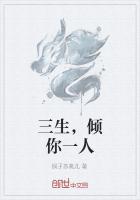There was formerly a melancholy fancifulness in the arrangement ofthese rustic offerings, that had something in it truly poetical. Therose was sometimes blended with the lily, to form a general emblemof frail mortality. "This sweet flower," said Evelyn, "borne on abranch set with thorns, and accompanied with the lily, are naturalhieroglyphics of our fugitive, umbratile, anxious, and transitorylife, which, ****** so fair a show for a time, is not yet withoutits thorns and crosses." The nature and color of the flowers, and ofthe ribbons with which they were tied, had often a particularreference to the qualities or story of the deceased, or wereexpressive of the feelings of the mourner. In an old poem, entitled"Corydon's Doleful Knell," a lover specifies the decorations heintends to use:
A garland shall be framed
By art and nature's skill,
Of sundry-colored flowers,
In token of good-will.
And sundry-color'd ribands
On it I will bestow;
But chiefly blacke and yellowe
With her to grave shall go.
I'll deck her tomb with flowers,
The rarest ever seen;
And with my tears as showers,
I'll keep them fresh and green.
The white rose, we are told, was planted at the grave of a virgin;her chaplet was tied with white ribbons, in token of her spotlessinnocence; though sometimes black ribbons were intermingled, tobespeak the grief of the survivors. The red rose was occasionally usedin remembrance of such as had been remarkable for benevolence; butroses in general were appropriated to the graves of lovers. Evelyntells us that the custom was not altogether extinct in his time,near his dwelling in the county of Surrey, "where the maidens yearlyplanted and decked the graves of their defunct sweethearts withrose-bushes." And Camden likewise remarks, in his Britannia: "Hereis also a certain custom, observed time out of mind, of plantingrose-trees upon the graves, especially by the young men and maidswho have lost their loves; so that this church-yard is now full ofthem."When the deceased had been unhappy in their loves, emblems of a moregloomy character were used, such as the yew and cypress; and ifflowers were strewn, they were of the most melancholy colors. Thus, inpoems by Thomas Stanley, Esq. (published in 1651), is the followingstanza:
Yet strew
Upon my dismall grave
Such offerings as you have,
Forsaken cypresse and sad yewe;
For kinder flowers can take no birth
Or growth from such unhappy earth.
In "The Maid's Tragedy," a pathetic little air is introduced,illustrative of this mode of decorating the funerals of females whohad been disappointed in love:
Lay a garland on my hearse,
Of the dismall yew,
Maidens, willow branches wear,
Say I died true.
My love was false, but I was firm,
From my hour of birth,
Upon my buried body lie
Lightly, gentle earth.
The natural effect of sorrow over the dead is to refine andelevate the mind; and we have a proof of it in the purity of sentimentand unaffected elegance of thought which pervaded the whole of thesefuneral observances. Thus, it was an especial precaution that none butsweet-scented evergreens and flowers should be employed. The intentionseems to have been to soften the horrors of the tomb, to beguile themind from brooding over the disgraces of perishing mortality, and toassociate the memory of the deceased with the most delicate andbeautiful objects in nature. There is a dismal process going on in thegrave, ere dust can return to its kindred dust, which theimagination shrinks from contemplating; and we seek still to thinkof the form we have loved, with those refined associations which itawakened when blooming before us in youth and beauty. "Lay her i'
the earth," says Laertes, of his virgin sister,And from her fair and unpolluted fleshMay violets spring!
Herrick, also, in his "Dirge of Jephtha," pours forth a fragrantflow of poetical thought and image, which in a manner embalms the deadin the recollections of the living.
Sleep in thy peace, thy bed of spice,
And make this place all Paradise:
May sweets grow here! and smoke from henceFat frankincense.
Let balme and cassia send their scent
From out thy maiden monument.
* * * * * *
May all shie maids at wonted hours
Come forth to strew thy tombe with flowers!
May virgins, when they come to mourn,
Male incense burn
Upon thine altar! then return
And leave thee sleeping in thine urn.
I might crowd my pages with extracts from the older British poetswho wrote when these rites were more prevalent, and delightedfrequently to allude to them; but I have already quoted more than isnecessary. I cannot however refrain from giving a passage fromShakespeare, even though it should appear trite; which illustrates theemblematical meaning often conveyed in these floral tributes; and atthe same time possesses that magic of language and appositeness ofimagery for which he stands pre-eminent.
With fairest flowers,
Whilst summer lasts, and I live here, Fidele,I'll sweeten thy sad grave; thou shalt not lackThe flower that's like thy face, pale primrose; norThe azured harebell, like thy veins; no, norThe leaf of eglantine; whom not to slander,Outsweeten'd not thy breath.
There is certainly something more affecting in these prompt andspontaneous offerings of nature, than in the most costly monumentsof art; the hand strews the flower while the heart is warm, and thetear falls on the grave as affection is binding the osier round thesod; but pathos expires under the slow labor of the chisel, and ischilled among the cold conceits of sculptured marble.















